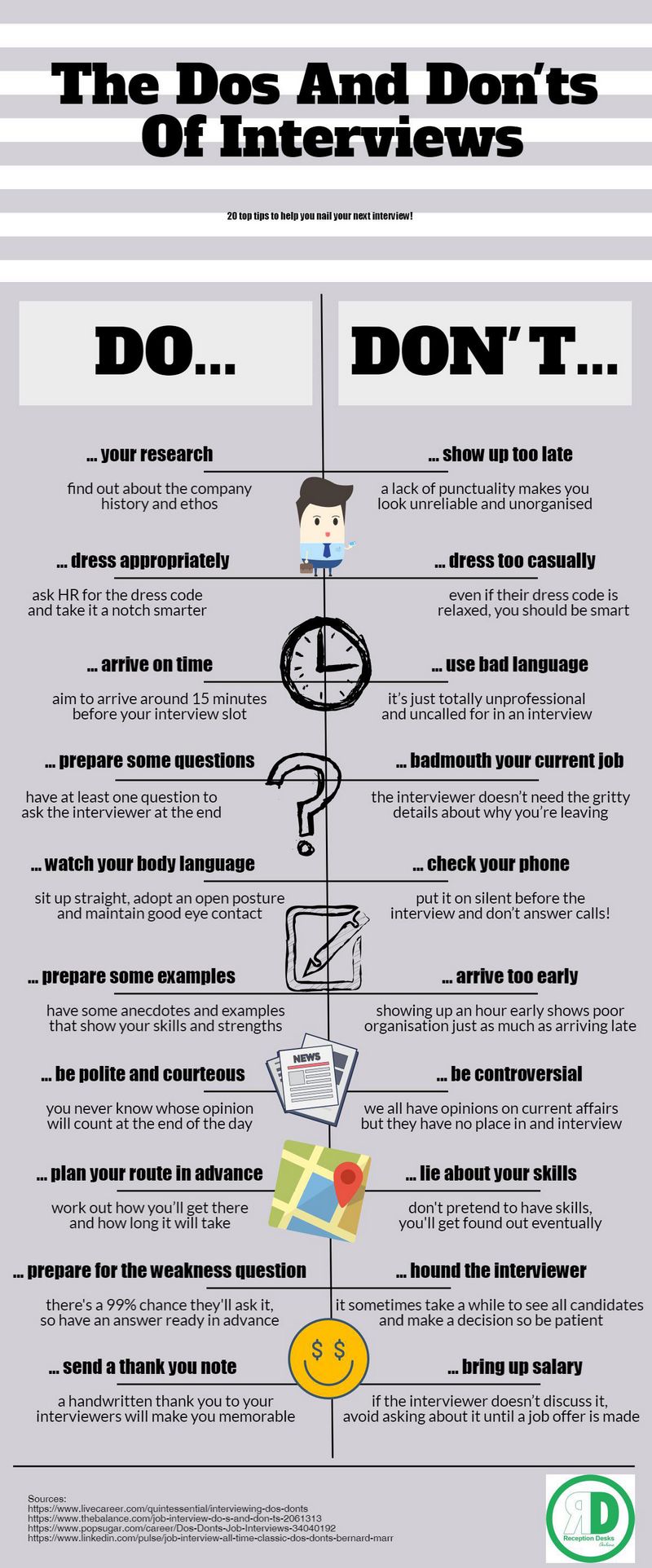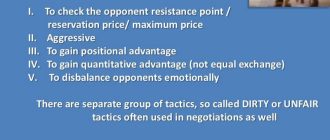
Arguing with Insurance Claims Adjusters: Do’s and Don’ts.
When dealing with insurance claims, it is essential to understand the role of insurance adjusters. Insurance adjusters are professionals who investigate insurance claims and determine the amount of compensation that should be paid. They play a crucial role in the claims process, and knowing how to interact with them can make a significant difference in the outcome of your case.
Here are some vital dos and don’ts to keep in mind when arguing with insurance claims adjusters. First and foremost, do take the time to gather all the necessary documentation to support your claim. This includes medical records, police reports, and any other evidence that strengthens your case. Providing clear and concise information will help the adjuster understand the merits of your claim.
On the other hand, don’t exaggerate or provide false information. Insurance adjusters are skilled at detecting inconsistencies and falsehoods, which can harm the credibility of your claim. It is essential to be honest and transparent throughout the process. If the adjuster senses dishonesty, it can negatively impact the outcome of your claim.
Another crucial “do” is to keep a record of all communication with the insurance adjuster. This includes written correspondence, phone conversations, and in-person meetings. Having a record of these interactions can be valuable if there are any disputes or conflicting information later on. Additionally, it is essential to communicate in a polite and respectful manner. Being aggressive or confrontational can hinder the progress of your claim.
Remember, insurance adjusters are experienced professionals. They may come across as skeptical or try to minimize the value of your claim. However, remaining calm and composed will help you navigate these challenges effectively. It is vital to be persistent if you believe your claim is being undervalued or unjustly denied. Seeking legal advice from a qualified attorney can provide you with the necessary guidance and support to handle these situations.
In conclusion, understanding how to interact with insurance claims adjusters can significantly impact the outcome of your insurance claim. By following these vital dos and don’ts, you can navigate the claims process with confidence and increase your chances of receiving fair compensation.
Collect All Evidence
When it comes to arguing with insurance claims adjusters, collecting all relevant evidence is crucial. The more evidence you have to support your case, the stronger your argument will be. Here are some important dos and don’ts when it comes to gathering evidence for your insurance claim:
| Do | Don’t |
| Collect photographs of the damage | Delay or procrastinate in collecting evidence |
| Obtain police reports, if applicable | Rely solely on verbal explanations or descriptions |
| Keep copies of any relevant documents | Disregard any witnesses who may have seen the incident |
| Document any medical records or bills | Assume the insurance company will automatically consider all evidence |
| Collect repair estimates or invoices | Forget to take notes during conversations with adjusters |
By following these dos and don’ts, you can ensure that you have a well-documented and persuasive case when arguing with insurance claims adjusters. Remember, the more evidence you have, the better chance you have of obtaining a fair settlement for your claim.
Understand Your Policy
When it comes to arguing with insurance claims adjusters, one of the most important things you can do is understand your policy. Many people make the mistake of assuming they are fully covered without actually reading the fine print. This can lead to misunderstandings and frustrations when trying to negotiate a claim.
To avoid this, take the time to carefully review your insurance policy. Make sure you understand the coverage limits, deductibles, and any exclusions that may apply. It’s also important to familiarize yourself with the claims process and any deadlines or requirements that need to be met.
By understanding your policy, you can confidently argue your position with insurance claims adjusters. You’ll be able to present evidence and documentation that supports your claim and counter any arguments or denials made by the adjuster.
Remember, the goal is to present a strong and convincing case for your claim. Take the time to educate yourself on the details of your policy and be prepared to articulate your position clearly and confidently.
Do: Read and understand your policy before arguing with insurance claims adjusters.
Don’t: Assume you are fully covered without reviewing the fine print of your policy.
Stay Calm and Polite
When arguing with insurance claim adjusters, it is important to stay calm and polite. Getting into an argument or losing your temper will not help your case and may actually hurt it. Remember that the adjuster is only doing their job and representing the insurance company’s interests.
Keep your emotions in check and try to approach the conversation in a logical and professional manner. Use clear and concise language to explain your position and provide supporting evidence for your claim. Avoid using aggressive or confrontational language as it may escalate the situation.
It is essential to listen carefully to what the adjuster says and ask for clarification if needed. Being attentive and respectful will demonstrate that you are taking the process seriously and are willing to engage in a constructive dialogue. Avoid interrupting or talking over the adjuster, as it shows a lack of respect and may hinder effective communication.
Remember that the adjuster is not your adversary but rather someone who is responsible for assessing your claim. Keep in mind that insurance policies can be complex and open to interpretation. Instead of arguing against the adjuster, focus on presenting clear and compelling evidence that supports your claim.
If you feel that the adjuster is being unfair or uncooperative, it is important to remain calm and request to speak with a supervisor or escalate the matter within the insurance company. Losing your temper or becoming disrespectful will only make it harder to resolve the issue in your favor.
Ultimately, staying calm and polite throughout the process will increase your chances of a successful resolution to your insurance claim. Remember to focus on the facts, present your case clearly, and maintain a professional demeanor when dealing with adjusters.
Provide Accurate Information
When arguing with insurance claims adjusters, it is crucial to always provide accurate information. The do’s and don’ts of interacting with claims adjusters depend on how well you communicate your side of the story. In order to effectively argue your case, you must ensure that the information you provide is factual and precise.
Do’s:
- Collect all evidence and documentation related to your claim. This includes photographs, videos, police reports, medical records, and any other relevant information that supports your case.
- Be thorough and organized when presenting your evidence. Make sure you have all necessary documents readily available and organized in a clear and logical manner.
- Provide specific details about the incident, such as dates, times, locations, and any other relevant details that can help strengthen your argument.
- Keep copies of all communication with the claims adjuster, including emails, letters, and phone call records. This will serve as a record of your interactions and can be useful if any issues arise later on.
- Stay calm and composed throughout the process. Emotional reactions can hinder your ability to effectively argue your case.
Don’ts:
- Exaggerate or misrepresent the facts of the incident. Providing false information can severely damage your credibility and may result in your claim being denied.
- Leave out any important details or evidence that can support your case. It is important to be thorough and include all relevant information.
- Engage in heated arguments or personal attacks with the claims adjuster. This will only escalate the situation and may harm your chances of reaching a satisfactory resolution.
- Provide contradictory or inconsistent information. Be sure to double-check your facts and ensure that all information you provide is consistent throughout the process.
- Delay or withhold information from the claims adjuster. Timeliness is key when dealing with insurance claims, so be prompt in providing the necessary information and responding to any requests.
By providing accurate and reliable information, you increase your chances of successfully arguing your case with insurance claims adjusters. Remember to stay organized, thorough, and always remain calm and professional throughout the process.
Ask for Written Documentation
When dealing with insurance claims adjusters, it’s crucial to ask for written documentation to support your case. Don’t rely solely on verbal promises or agreements; instead, request that all important information and agreements be provided to you in writing.
Having written documentation is important for several reasons. First, it ensures that there is a record of the discussions and agreements made between you and the adjuster. This can help prevent any misunderstandings or disputes down the line.
Second, written documentation allows you to review the information at your own pace and have a clear understanding of your rights and entitlements. It gives you the opportunity to review the details of the claim, including coverage limits, deductibles, and any exclusions or restrictions.
To request written documentation, be sure to articulate your needs clearly and professionally. You can say something like, “I appreciate our discussion, but to ensure that I fully understand the terms and conditions of my insurance policy and claim, could you please provide me with written documentation summarizing our conversation?”
Additionally, keep copies of any written documentation provided to you by the insurance claims adjuster. This will allow you to refer back to the information if needed and can serve as evidence in case of any disputes or discrepancies later on.
Remember, asking for written documentation is one of the vital do’s when dealing with insurance claims adjusters. It helps protect your interests and ensures that you have a clear and accurate understanding of your insurance claim.
Maintain a Log of Communication
When dealing with insurance claims adjusters, it is essential to keep a detailed record of all communication. This record will serve as your documentation and may be crucial in case of disputes or misunderstandings down the line.
Here are some do’s and don’ts when it comes to maintaining a log of communication with insurance adjusters:
- Do: Keep track of all phone calls, emails, and letters exchanged with the adjuster. Include dates, times, and the content of each communication in your log.
- Do: Take notes during phone calls or meetings with adjusters. Summarize important points and clarify any uncertainties.
- Do: Keep copies of any documents or evidence you send to the adjuster, such as medical bills or repair estimates, and make a note of when you sent them.
- Do: Use a spreadsheet or another organized method to log your communication. This will make it easier to navigate and search for specific information when needed.
- Don’t: Rely solely on your memory to recall details of past conversations. Memories can fade over time, and having a written record is much more reliable.
- Don’t: Delete or discard any communication, even if it seems insignificant at the time. It may become important later on.
- Don’t: Use your log to express frustration or anger towards the adjuster. Keep it professional and focused on the facts.
By maintaining a detailed log of communication with insurance adjusters, you can confidently refer back to specific conversations or agreements, ensuring that your claims process proceeds smoothly and accurately.
Hire an Independent Appraiser
When arguing with insurance claims adjusters, it’s important to remember that their job is to protect the interests of the insurance company. This means they may try to downplay or deny your claim in order to minimize the payout. To level the playing field, it can be extremely helpful to hire an independent appraiser.
An independent appraiser is a professional who specializes in evaluating the value of property or assets. By hiring an independent appraiser, you ensure that your claim is being assessed by someone who has no vested interest in the outcome. This can provide you with an unbiased assessment of the damages, which can strengthen your argument with the insurance company.
When hiring an independent appraiser, it’s important to choose someone who is experienced and reputable. Look for appraisers who are licensed or certified in their field, and consider seeking recommendations from trusted sources, such as friends, family, or legal professionals.
Additionally, it’s crucial to communicate openly and honestly with your hired appraiser. Provide them with all the necessary documentation, such as photos, receipts, and repair estimates, to support your claim. Be sure to discuss your expectations and goals with them, so they can tailor their assessment accordingly.
Remember, hiring an independent appraiser is just one step in the process of arguing with insurance claims adjusters. It’s also important to be prepared, document everything, and negotiate effectively. By following these vital dos and don’ts, you can increase your chances of a successful claim resolution.
Avoid Misrepresenting Facts

When arguing with insurance claims adjusters, it’s crucial to stick to the facts and avoid misrepresenting any information. Misrepresenting facts can significantly undermine your credibility and jeopardize your chances of a successful claim. To avoid making this mistake, here are some essential do’s and don’ts to keep in mind:
| Do’s | Don’ts |
| Provide accurate and truthful information about the incident or loss | Exaggerate or embellish the details of what happened |
| Collect and present any evidence or documentation that supports your claim | Withhold or manipulate evidence to make your case appear stronger |
| Be clear and concise in your communication | Use misleading or deceptive language to confuse the adjuster |
| Stay organized and keep a record of all correspondence and conversations | Fabricate or alter any documentation or records |
| Seek legal advice if you are unsure about how to respond to certain requests or inquiries | Misrepresent any information about your medical history, employment, or financial situation |
By following these guidelines, you can maintain your integrity and credibility throughout the claims process, increasing the likelihood of a fair and just resolution.
Consult with an Attorney
When dealing with insurance claims adjusters, it’s important to consult with an attorney to ensure you are following the proper steps and protecting your rights. An attorney specializing in insurance claims can provide you with valuable guidance and help you navigate the complex process.
Here are some dos and don’ts when consulting with an attorney:
- Do hire an attorney who has experience in insurance claims. They will have the knowledge and expertise to handle your case effectively.
- Don’t delay in consulting with an attorney. Time is of the essence when it comes to insurance claims, and getting legal advice early on can greatly benefit your case.
- Do disclose all relevant information to your attorney. This includes details about the incident, your insurance policy, and any communication with the claims adjuster.
- Don’t sign any documents without consulting with your attorney first. They can review the paperwork and ensure that your rights are protected.
- Do ask questions and clarify any concerns you may have about the insurance claims process. Your attorney is there to guide you and provide you with the information you need.
- Don’t underestimate the importance of having legal representation. Insurance claims can be complex and adversarial, and having an attorney on your side can level the playing field.
By consulting with an attorney, you can ensure that your rights are protected and that you have proper legal representation throughout the insurance claims process. Don’t hesitate to seek legal advice if you are unsure about how to proceed with your claim. Your attorney will work to protect your interests and help you obtain the compensation you deserve.
Be Prepared for Negotiation
When arguing with insurance claims adjusters, it is important to be prepared for negotiation. Here are some vital dos and don’ts to keep in mind:
Do’s:
- Do your research and gather all the necessary documentation to support your claim.
- Do stay calm and composed during the negotiation process.
- Do listen carefully to the adjuster’s arguments and counter them with logical reasoning.
- Do be persistent and assertive in advocating for your rights and the fair settlement of your claim.
- Do consider seeking legal advice if you feel the need for extra support.
Don’ts:
- Don’t let emotions take control of the negotiation. Stay focused on the facts.
- Don’t make exaggerated or false claims that could harm your credibility.
- Don’t immediately accept the adjuster’s initial offer without carefully reviewing it.
- Don’t rush the negotiation process. Take your time to thoroughly evaluate each offer and make informed decisions.
- Don’t forget to follow up in writing after any negotiation to ensure everything is clearly documented.
By being prepared for negotiation and following these dos and don’ts, you can increase your chances of reaching a fair outcome for your insurance claim.
Do Not Accept Lowball Offers
When it comes to dealing with insurance claims adjusters, one of the most important don’ts is to never accept a lowball offer. Insurance adjusters are often trained to try and settle claims for as little money as possible, in order to save their company money. They may use tactics such as downplaying the extent of your damages or injuries, or offering a quick settlement that doesn’t properly compensate you for your losses.
It is crucial that you recognize when an adjuster is making a lowball offer and do not accept it. Remember, insurance companies are in the business of making a profit, and not in the business of looking out for your best interests. They may try to pressure you into accepting a low offer by claiming it’s their final offer or by threatening to delay the settlement process if you don’t accept it.
Instead of accepting a lowball offer, it is important to push back and negotiate for a fair settlement. Provide the adjuster with evidence of your damages, such as medical records, repair estimates, and any other relevant documentation. Be prepared to make a strong case for why you deserve a higher settlement amount.
If negotiations with the adjuster are not successful, you may need to consider hiring a lawyer who specializes in insurance claims. They can advocate for your rights and help you navigate the complex process of dealing with insurance companies. Remember, it’s your right to receive fair compensation for your losses, and don’t let an adjuster pressure you into accepting less than you deserve.
Keep Track of Expenses
When arguing with insurance claims adjusters, it is vital to keep track of all expenses related to your claim. This includes documenting any medical bills, repair costs, rental fees, and other relevant expenses. By maintaining a detailed record of these expenses, you can provide the adjuster with solid evidence for the financial impact that the incident has had on your life.
Here are some dos and don’ts when it comes to keeping track of your expenses:
- Do: Keep all receipts, invoices, and other proof of payments in a safe place. This will help you maintain a clear and organized record.
- Do: Make copies of all important documents, so you have backups in case anything gets lost or damaged.
- Do: Keep a detailed log of any additional expenses you incur as a result of the incident. This can include transportation costs for medical appointments or temporary lodging expenses if your home is uninhabitable.
- Do: Provide the adjuster with copies of your expense records as soon as possible. This will demonstrate your willingness to cooperate and provide them with the necessary information.
On the other hand, there are some things you should avoid when keeping track of expenses:
- Don’t: Rely solely on your memory to remember all the expenses. It’s easy to forget smaller expenses, and having a written record will help you accurately calculate the total amount.
- Don’t: Delay documenting your expenses. The longer you wait, the more likely you are to forget or misplace crucial documents. It’s best to track your expenses from the beginning to ensure nothing is missed.
- Don’t: Underestimate the importance of even minor expenses. Even small costs can add up and contribute to the overall financial impact of the incident. Include everything, no matter how insignificant it may seem.
- Don’t: Forget to update your expense records as new expenses arise. As your claim progresses, you may incur additional costs that need to be documented and included in your overall claim.
By following these dos and avoiding the don’ts when it comes to tracking your expenses, you can strengthen your argument with insurance claims adjusters and present a comprehensive record of the financial impact you have experienced.
Seek Legal Action If Necessary
If you find yourself at a standstill with the insurance company and their claims adjusters, it may be necessary to seek legal action. This can happen if the insurance company refuses to pay the claim or if they offer an inadequate settlement amount.
When considering legal action, it is important to consult with an attorney who specializes in insurance claims. They will have the expertise and knowledge to navigate through the complex legal process and advocate for your rights as a policyholder.
When pursuing a legal case against the insurance company, there are several things you should do:
- Gather all relevant documents and evidence related to your claim, such as medical records, repair estimates, and correspondence with the insurance company.
- Keep a detailed record of all communications with the insurance company, including dates, times, and the names of the individuals you spoke with.
- Familiarize yourself with the terms and conditions of your insurance policy, so you can understand your rights and obligations as a policyholder.
- Be prepared to negotiate with the insurance company during the legal process. It is not uncommon for insurance companies to try and settle the case before it goes to court.
However, there are also things you should avoid when considering legal action:
- Do not delay in seeking legal advice. The sooner you consult with an attorney, the better chances you have of resolving the claim successfully.
- Do not make any false or exaggerated statements to support your case. Honesty is crucial when dealing with legal matters.
- Do not sign any documents or accept any settlement offers from the insurance company without first consulting with your attorney.
- Do not lose your temper or engage in aggressive behavior with the insurance company’s representatives. This could harm your case and make it more difficult to reach a resolution.
By following these guidelines and seeking legal assistance when necessary, you can effectively navigate the process of arguing with insurance claims adjusters and improve your chances of a favorable outcome.
undefined
What are some dos when arguing with insurance claims adjusters?
When arguing with insurance claims adjusters, it is important to gather all the necessary documents and evidence to support your claim. This includes any medical records, photographs, or witness statements that can help prove your case. It is also crucial to remain calm and professional throughout the process, as getting angry or emotional may hinder your chances of successfully negotiating with the adjuster. Additionally, it can be helpful to consult with an attorney who specializes in insurance claims to ensure you are aware of your rights and have the best possible representation.
What are some don’ts when arguing with insurance claims adjusters?
When arguing with insurance claims adjusters, it is important to avoid providing any recorded statements without first consulting with an attorney. These statements can be used against you during the claims process and may weaken your case. It is also advisable not to settle for the initial offer made by the adjuster, as they often start with a lowball offer to save the company money. Instead, consider negotiating for a fair and reasonable settlement that adequately compensates you for your losses. Lastly, it is crucial not to sign any settlement agreements without thoroughly reviewing and understanding the terms, as doing so may limit your rights to future claims.
Why is it important to gather evidence when arguing with insurance claims adjusters?
Gathering evidence is crucial when arguing with insurance claims adjusters because it helps prove the validity of your claim. Insurance companies often look for any possible reason to deny or devalue claims, and having strong evidence can counter their arguments and support your case. Medical records, photographs, or witness statements can provide proof of the extent of your injuries or damages, helping to establish a clear link between the incident and the claim. By presenting solid evidence, you increase your chances of obtaining a fair and favorable settlement from the insurance company.
How should I handle my emotions when arguing with insurance claims adjusters?
When arguing with insurance claims adjusters, it is important to remain calm and professional, regardless of how frustrating or unfair the process may seem. Getting angry or emotional can hinder your ability to effectively negotiate and may even damage your credibility. Instead, focus on presenting your case in a clear and rational manner, using facts and evidence to support your arguments. If you find it difficult to stay calm, consider enlisting the help of an attorney who can represent your interests and handle the negotiations on your behalf.
Should I consult with an attorney when arguing with insurance claims adjusters?
Consulting with an attorney when arguing with insurance claims adjusters can be highly beneficial. An attorney who specializes in insurance claims can provide you with legal advice, help you understand your rights, and guide you through the claims process. They have experience dealing with insurance companies and can negotiate on your behalf to pursue a fair and reasonable settlement. Additionally, an attorney can help you gather the necessary evidence, ensure you don’t make any costly mistakes, and represent your interests if the case goes to litigation. Having an attorney by your side can significantly improve your chances of a successful outcome.
What should I do if I’m having a dispute with an insurance claims adjuster?
If you’re having a dispute with an insurance claims adjuster, it’s important to remain calm and collected. Gather all the necessary documents and evidence to support your claim, and communicate your concerns clearly and professionally with the adjuster. If necessary, you can escalate the issue to a supervisor or file a complaint with the insurance company.
Can I negotiate with an insurance claims adjuster?
Yes, you can negotiate with an insurance claims adjuster. It’s important to be prepared and have supporting evidence to back up your arguments. Understand your policy coverage and rights, and present your case in a clear and concise manner. Be willing to compromise and find a middle ground that is satisfactory for both parties.






